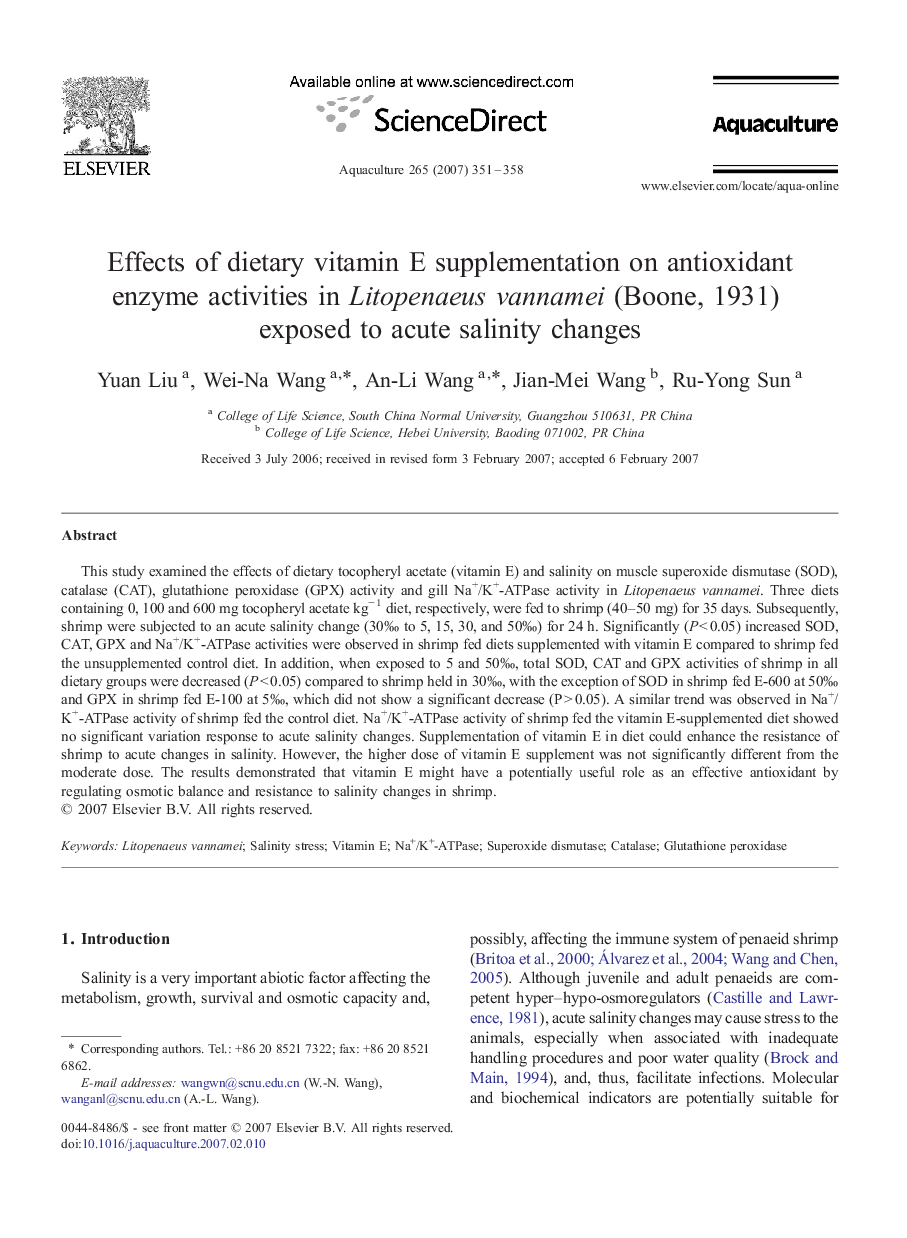| کد مقاله | کد نشریه | سال انتشار | مقاله انگلیسی | نسخه تمام متن |
|---|---|---|---|---|
| 2425641 | 1552977 | 2007 | 8 صفحه PDF | دانلود رایگان |

This study examined the effects of dietary tocopheryl acetate (vitamin E) and salinity on muscle superoxide dismutase (SOD), catalase (CAT), glutathione peroxidase (GPX) activity and gill Na+/K+-ATPase activity in Litopenaeus vannamei. Three diets containing 0, 100 and 600 mg tocopheryl acetate kg− 1 diet, respectively, were fed to shrimp (40–50 mg) for 35 days. Subsequently, shrimp were subjected to an acute salinity change (30‰ to 5, 15, 30, and 50‰) for 24 h. Significantly (P < 0.05) increased SOD, CAT, GPX and Na+/K+-ATPase activities were observed in shrimp fed diets supplemented with vitamin E compared to shrimp fed the unsupplemented control diet. In addition, when exposed to 5 and 50‰, total SOD, CAT and GPX activities of shrimp in all dietary groups were decreased (P < 0.05) compared to shrimp held in 30‰, with the exception of SOD in shrimp fed E-600 at 50‰ and GPX in shrimp fed E-100 at 5‰, which did not show a significant decrease (P > 0.05). A similar trend was observed in Na+/K+-ATPase activity of shrimp fed the control diet. Na+/K+-ATPase activity of shrimp fed the vitamin E-supplemented diet showed no significant variation response to acute salinity changes. Supplementation of vitamin E in diet could enhance the resistance of shrimp to acute changes in salinity. However, the higher dose of vitamin E supplement was not significantly different from the moderate dose. The results demonstrated that vitamin E might have a potentially useful role as an effective antioxidant by regulating osmotic balance and resistance to salinity changes in shrimp.
Journal: Aquaculture - Volume 265, Issues 1–4, 1 May 2007, Pages 351–358